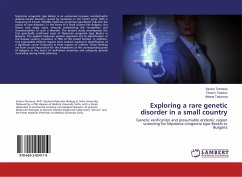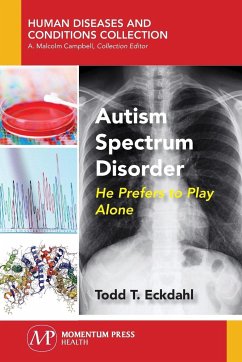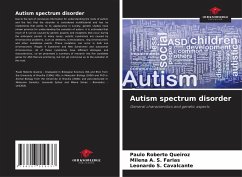
Parent-of-origin Effect in Families of Bipolar Disorder
Evidence from Three Kinds of Genetic Statistical Methods
Versandkostenfrei!
Versandfertig in 6-10 Tagen
52,99 €
inkl. MwSt.

PAYBACK Punkte
26 °P sammeln!
Bipolar disorder is a chronic psychiatric disease characterized by swinging pathologic mood changes and potentially devastating impact on social functioning with an estimated 1% life prevalence in United States. Twin, adoption, and family studies have supported the role of a genetic component in the pathogenesis of bipolar disorder. In this book, three different approaches (segregation analysis, IBD analysis, and TDT analysis) were applied to test for heterogeneity between two subgroups defined by parental lineality of disease transmission. These three lines of evidence support heterogeneity o...
Bipolar disorder is a chronic psychiatric disease characterized by swinging pathologic mood changes and potentially devastating impact on social functioning with an estimated 1% life prevalence in United States. Twin, adoption, and family studies have supported the role of a genetic component in the pathogenesis of bipolar disorder. In this book, three different approaches (segregation analysis, IBD analysis, and TDT analysis) were applied to test for heterogeneity between two subgroups defined by parental lineality of disease transmission. These three lines of evidence support heterogeneity of bipolar disorder between families with different parental transmission linearity. They also confirm previously suspected parent-of-origin phenomenon and suggest a possible way to enhance the prevention, diagnosis, and treatment of bipolar disorder in public health by incorporating this idea into further approaches.












